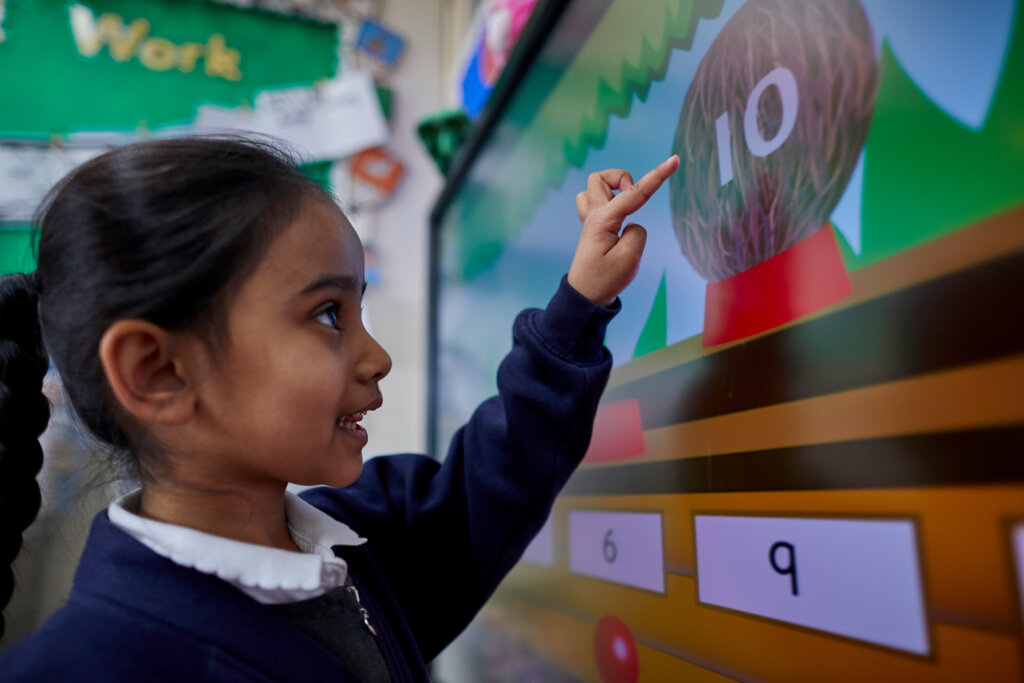From school closure to recovery: how far we have to go
Throughout the 2021/22 academic year, Ofsted has published a series of briefings on the continued effects of Covid and education recovery in schools. In the final briefing, Ofsted draws on evidence from inspections across the summer term, focusing particularly on pupils with SEND and those that took part in this year’s exams.
For pupils with SEND, the report found that ‘the pandemic has had a disproportionate effect.’ This year, school leaders are seeking more referrals for SEND assessments than they would have done before the pandemic, and parents are also more likely to ask about SEND assessments for their child. Leaders are still unsure ‘whether concerns were because pupils had SEND, or whether their additional needs were a result of pandemic disruption, such as gaps in knowledge caused by missed learning and delays in speech and language due to fewer opportunities for social interaction.’ With the increase in requests, many pupils still face delays in assessments for Education, Health and Care (EHC) plans, as well as access to mental health services.
Due to gaps in knowledge and a lack of confidence in exam technique, pupils sitting their exams this summer reported higher levels of anxiety than before the pandemic. Inspectors also recognised exam-related stress and anxiety amongst staff, especially in schools heavily affected by the pandemic. The briefing notes that ‘in some schools, this anxiety was transmitted to pupils.’
Ofsted also found that many children preparing to start the next phase of their education were still not ready to transition, having missed out on vital learning experiences. Whilst children in Early Years and Key Stage One still struggled with phonics, behavioural expectations and social skills, Year 6 children had limited knowledge of foundation subjects. Leaders also highlighted concerns about pupils in Year 7 and Year 8, whose transition into secondary school was disrupted by the pandemic. Some were still catching up on Key Stage Two content, including reading and mathematics, and struggled to meet behavioural expectations.
Despite the setbacks caused by the pandemic, Ofsted confirms that ‘leaders and staff have worked tirelessly and creatively across the year to settle pupils back into school routines and help them catch up academically.’ Whilst this has been successful for some pupils, others are still behind academically and in terms of their wider development.
Teachers’ pay award – rises to five percent
Earlier this year, Nadhim Zahwai, former education secretary, wrote to the School Teachers’ Review Body (STRB), with plans to increase starting teacher’s salaries by sixteen percent over the next two years, limiting the pay rise for experienced teachers to three percent. As inflation climbed in the following months, teachers’ unions made it clear that they would campaign for industrial action if plans for a three percent pay rise persisted, amounting to a huge pay cut for teachers.
The STRB report concluded that, ‘it is necessary and appropriate to exceed the government’s proposed general pay increases for experienced teachers […] in order to address the risks to teacher supply while balancing the needs of affordability.’ In line with their recommendations, the government has announced that teachers will see a salary increase of five percent from September 2022. James Cleverly, the current education secretary, emphasises this is ‘the biggest pay rise in a generation [which] will attract more top-quality talent to inspire children and young people and reward teachers for their hard work.’
However, unions claim that ‘this isn’t a five percent pay rise, it is a nearly seven percent pay cut.’ In a joint letter, the National Education Union (NEU), the Association for School and College Leaders (ASCL), and the NASUWT teachers’ union, the NAHT school leaders’ union, and Community: union for education professionals, have each condemned the ‘botched teacher pay award,’ which not only undervalues the work done by teachers, but provides no additional funding for schools to manage the extra costs.
Paul Whiteman, general secretary of the NAHT school leaders’ union, explains ‘this will put enormous and unsustainable pressure on school budgets. Ultimately this could lead to a situation where schools are having to consider cuts to essential services or even redundancies.’
As a result, the NEU, ASCL and NASUWT all say they will be consulting members on taking industrial action. Kevin Courtney, joint general secretary of the NEU, clarifies that ‘teachers don’t want to strike – they want to be in the classroom teaching our pupils. But we cannot stand by and watch the biggest real-terms decline in teacher pay this century.’
Warnings of a school funding crisis
This week, schools minister Will Quince announced that core schools funding will increase by £1.5 billion in 2023/24. These figures amount to a funding increase of just 1.9 percent per pupil compared to the previous year, despite the huge inflationary pressures facing schools.
As of May, the Consumer Price Index (CPI) measure of inflation rose to 9.1 percent. With rising costs of oil, food, core goods and services, the Bank of England expects inflation to hit double digits in autumn, rising above 11 percent in October. Kevin Courtney, joint general secretary of the National Education Union (NEU), says that this ‘£1.5bn increase to school funding 2023/24 might have looked food when first announced in the 2021 Spending Review, but the surge in inflation since then means it’s a big real-terms cut for education spending.’
As the government sets out in the national funding formulae for schools, every primary school will receive at least £4,405 per pupil, and every secondary school at least £5,715. With a minimum floor increase of just 0.5 percent per pupil, Kevin Courtney explains that this will result in a huge cut for more than half of all mainstream schools, as ‘22 percent are funded at the minimum funding level and a further 31 percent are funded at the rate set by the funding floor.’
With the pressures of inflation, combined with the costs of Covid recovery and the recent teachers pay award, school leaders warn that cutbacks to provision will become inevitable. Whilst ministers claim they are ‘committed to levelling up opportunity for all children and young people,’ unions protest that the government is ‘returning to the bad days of austerity.’ In response, the NEU plans to challenge the proposed funding settlement, and will reach out to parents, governors and other unions for support.
As schools close for the summer, school leaders can use this time to make repairs, upgrade resources and infrastructure, and plan for the challenges ahead. Please get in touch to find out how One Education can help you prepare for a successful start in September.















